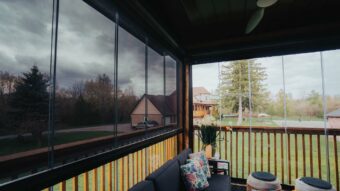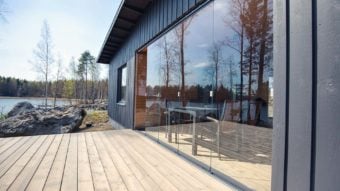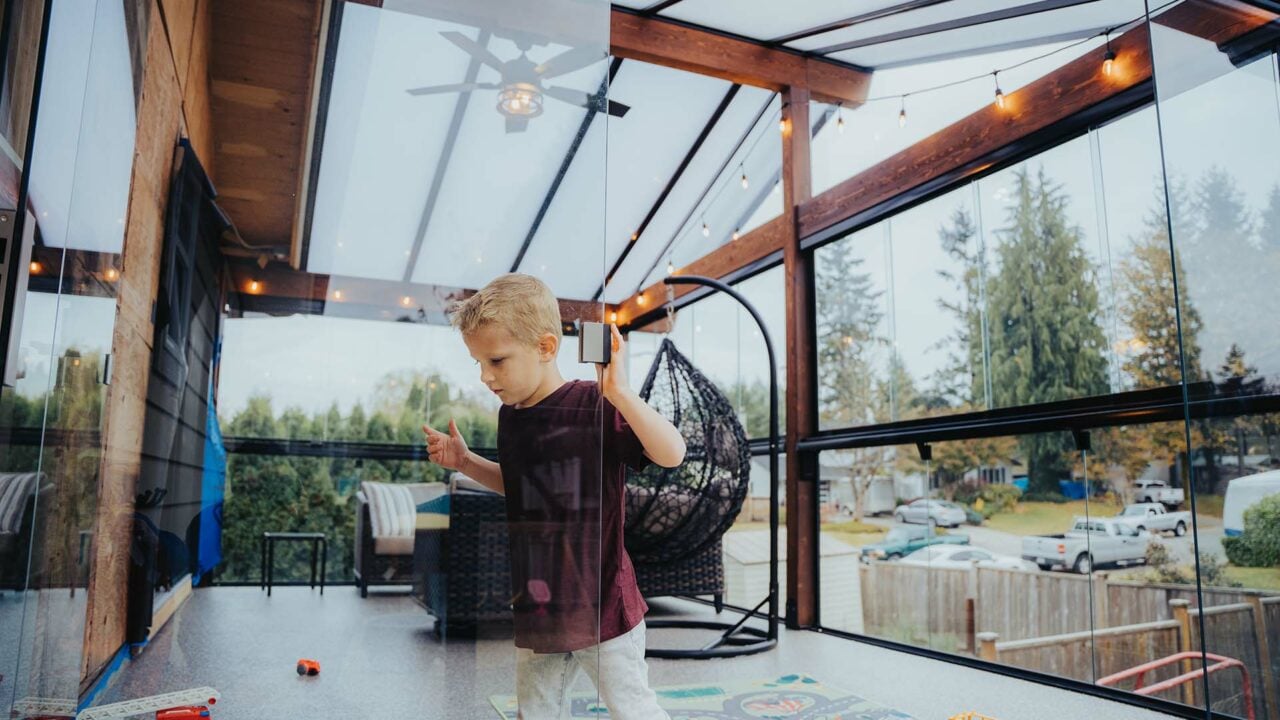
DIY sunroom kits v/s custom sunrooms: Pros and Cons
When it comes to adding a sunroom to your home, homeowners often find themselves at a crossroads: Should they go with a custom sunroom professionally installed, or take the DIY (do-it-yourself) sunroom kits?
Both options offer unique advantages, but each also comes with its own set of challenges. To help you make the best decision for your home, lifestyle, and budget, we’ll break down the key differences between custom and DIY sunrooms.
DIY Sunrooms: Pros & Cons
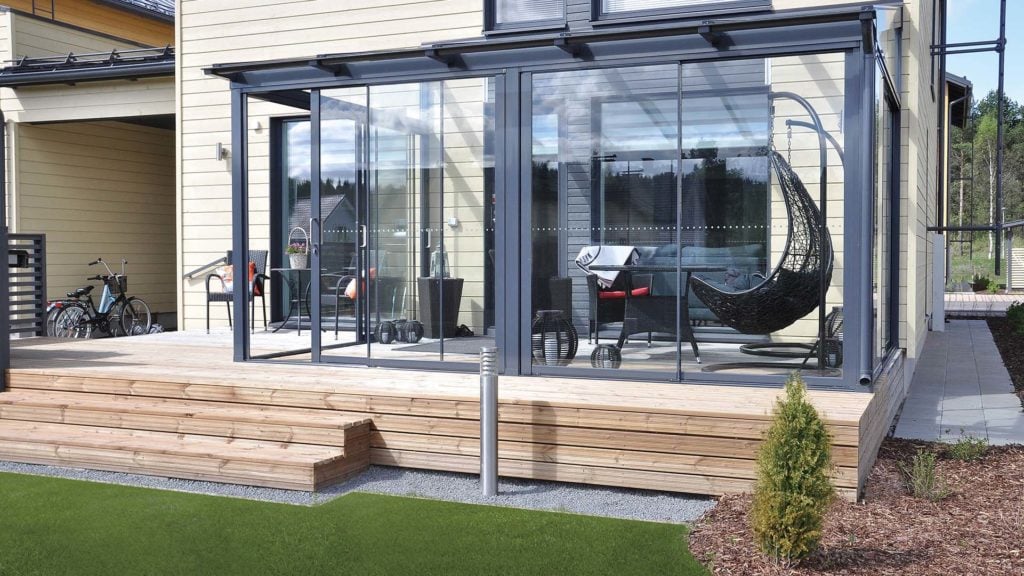
Pros of DIY Sunroom Kits
There are some benefits about installing a sunroom yourself from a kit.
- Lower Initial Costs: One of the biggest positive characteristics of DIY sunroom kits is the price. Kits are significantly more affordable than custom-built sunrooms because you save on labor costs by doing the work yourself. You can avoid paying for professional installation, design consultation, and other services associated with custom sunrooms.
- Quicker timelines: DIY kits are readily available at home improvement stores or through online retailers like Home Depot. You can often have the kit delivered within a few days, allowing you to start your project sooner. Since you’re handling the installation yourself, you can work at your own pace, starting and stopping the project based on your schedule.
- Personal Satisfaction: Who doesn’t feel proud after completing something themselves? That’s the spirit of DIY; the sense of pride and accomplishment when you look back at something you made entirely yourself is palpable. For those who enjoy hands-on work, building your own sunroom can be a rewarding challenge.

Cons of DIY Sunroom Kits
However, there are also some drawbacks to consider.
- Limited Customization: DIY sunroom kits come in standard sizes and designs, meaning you won’t have the flexibility to tailor the sunroom to your specific preferences or match it seamlessly with your home’s architecture. For those looking for a truly unique space, DIY kits don’t offer the same level of customization that a professionally designed sunroom can provide.
- Challenging Installation Process: Building a sunroom requires basic construction skills. For those without experience, the project may become frustrating or overwhelming. Before you take on DIY sunroom kit projects, it is important to figure out if you can handle the tasks needed to finish the project. Mistakes during installation can lead to structural issues, leaks, or even damage to your home’s exterior. Any errors may result in the need for professional repairs, increasing overall costs.
- Quality and Energy Efficiency Concerns: Most DIY kits are made with standard-grade materials that may not offer the same level of durability as custom sunrooms. This could result in less energy efficiency and increased maintenance over time. DIY kits often don’t account for the specific structural reinforcements needed to handle high wind speeds or heavy snowfall. If snow load exceeds the kit’s capacity, there’s a real risk of roof collapse, which could result in significant damage or injury. DIY sunrooms may not stand up to extreme weather or wear and tear as well as professionally built options, meaning they might not last as long.
- Permitting and Legal Requirements: DIYers are responsible for securing all necessary permits and ensuring the sunroom complies with local building codes. This can be a complicated process, and failing to meet regulations could result in fines or other legal issues. Improper installation could pose safety hazards, such as structural instability or electrical issues, that may require professional intervention.
Custom Sunrooms: Pros and Cons
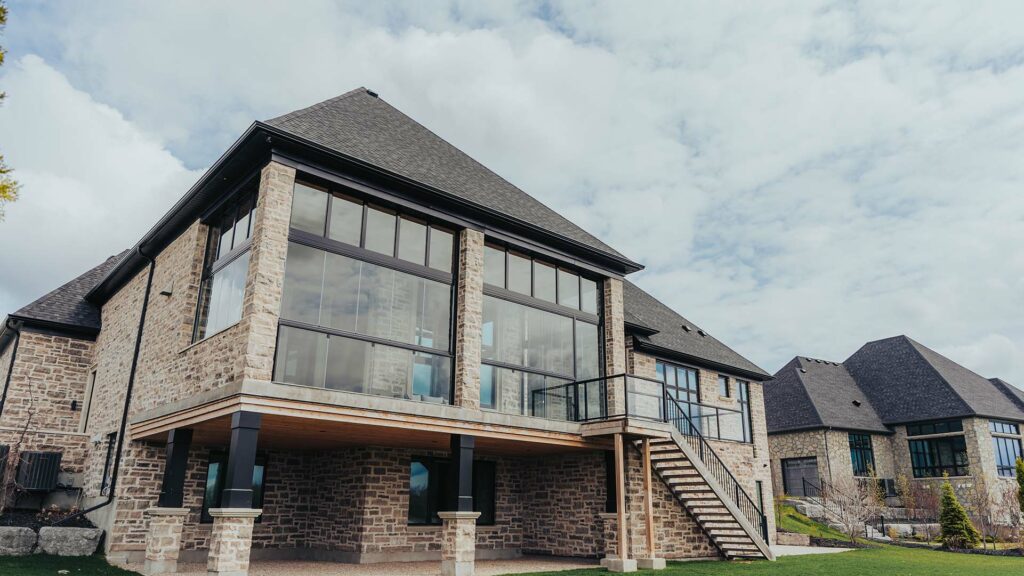
Pros of Custom Sunrooms
Now, let’s look at the benefits of custom sunroom installations.
- Complete Customization: Custom sunrooms are designed specifically for your home, allowing you to choose the size and style that match your vision. This flexibility ensures the sunroom integrates seamlessly with your home’s architecture and enhances its aesthetic appeal. With a custom build, you have full control over the look and feel of your sunroom.
- Professional Installation and Expertise: With a professional installation, you benefit from the expertise of skilled contractors who understand structural integrity, building codes, and proper installation techniques. Professional companies handle all aspects of the project, including obtaining permits, managing the construction timeline, and ensuring everything is up to code. This takes the stress off your shoulders. Read everything you need to know about the process from planning to installation here.
- Energy Efficiency and Longevity: Custom sunrooms are built using premium materials that offer better insulation, durability, and energy efficiency, ensuring a comfortable living space year-round. They’re also engineered to withstand the specific environmental challenges of your region. For example, in areas prone to heavy snowfall, the structure will be designed to support higher snow loads, preventing roof collapse and ensuring long-term stability. Similarly, reinforcements for high wind resistance are built into the design. Finally, A custom-built sunroom is designed to last for decades, providing more long-term value and fewer repairs or upgrades compared to a DIY kit.
- Increased Home Value: Custom sunrooms can significantly increase the resale value of your home. A well-designed sunroom adds curb appeal and functional living space, making your home more attractive to potential buyers. Homes with professionally built sunrooms often receive higher appraisals compared to those with DIY additions, as custom builds are considered higher quality.
- Warranty and Support: Reputable sunroom companies often offer warranties on materials and workmanship, giving you peace of mind that any issues will be addressed by professionals. With a custom installation, you can rely on the company for ongoing maintenance or repairs, ensuring that your sunroom remains in top condition for years to come.
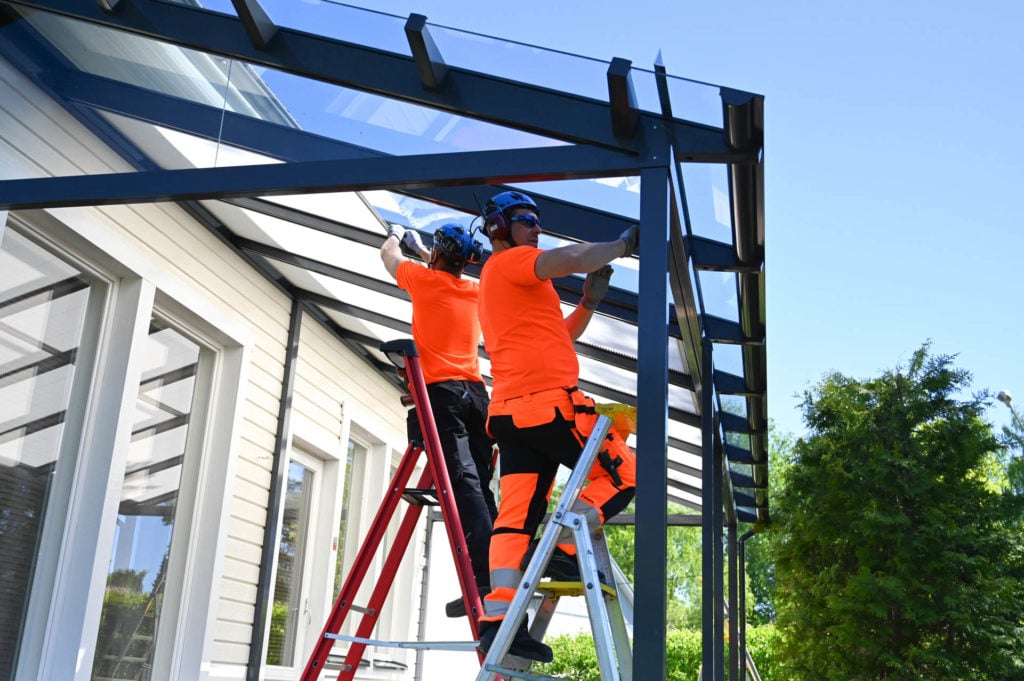
Cons of Custom Sunrooms
There are factors to consider about custom sunroom installations.
- Higher Initial Costs: Custom sunrooms come with a higher price tag due to the professional labor, design, and high-quality materials involved. For homeowners on a tight budget, this may be a significant drawback. While the long-term benefits and durability make custom sunrooms a great investment, the upfront costs may be out of reach for some homeowners.
- Longer timeline: Custom sunrooms take longer to design, plan, and build compared to a DIY kit. You will need to account for consultation meetings, material orders, and scheduling with contractors.
- Potential Permit Delays: Although professional companies take care of obtaining permits, the permitting process can still lead to delays. Local regulations or inspections may slow down construction, pushing your completion date further back.
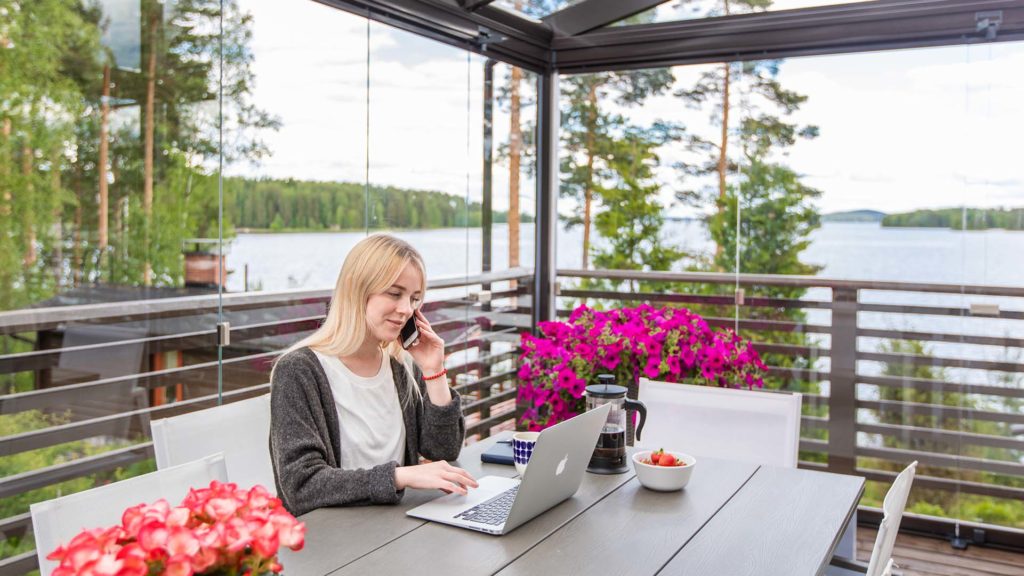
Which Is Right for You?
Deciding between a DIY sunroom kit and a custom sunroom depends on your priorities, budget, and how much time and effort you’re willing to invest.
- If you’re looking for affordability and don’t mind a pre-set design with minimal customization, a DIY kit might be the right choice for you—especially if you enjoy taking on hands-on projects.
- However, if you’re seeking a long-lasting, high-quality, and fully personalized space that enhances your home’s value, a custom-built sunroom is well worth the investment. With professional expertise, better materials, and a seamless integration into your home, a custom sunroom offers long-term benefits that far outweigh the initial costs.
At Lumon, we specialize in custom sunrooms that meet your specific needs while offering beauty, functionality, and durability for years to come. Whatever your decision, we’re here to help guide you through the process!
You might also be interested in..
-
What Made This Homeowner Say ‘Yes’ to a Major Outdoor Upgrade
Read more…When Adam Chan set out to enhance his outdoor space in Brampton, Ontario, he was looking for more than just a functional glass enclosure. He wanted something beautiful, durable, and thoughtfully designed, too.
-
How Much Does a Sunroom Cost?
Read more…Sunrooms have become a popular addition for homeowners looking to enhance their living space and connect with the outdoors without compromising comfort. However, as delightful as they may be, planning your sunroom involves understanding the factors that influence its cost.
-
A Guide to Cat-Proofing Your Patio
Read more…Cats love to bask in the sun and enjoy the breeze as much as we do. But all it takes is a moment of distraction for them to get themselves into trouble. That’s why taking steps to cat-proof your balcony is the best way to ensure they’re safe while they explore the outdoors.
